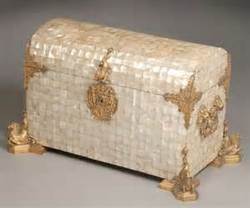|
One day the wise king Solomon, decided to humble his most trusted ministers, Benaiah ben Yehoyada. He said to him, “Benaiah, there is a certain ring that I want you to bring to me. I wish to wear it for Sukkot, which gives you six months to find it.”
“If it exists anywhere on earth, your majesty,” replied Benaiah, “I will find it and bring it to you, but what makes the ring so special?” “It has magic powers,” answered the king. “It can make a happy man sad and a sad man happy.” Solomon knew that no such ring existed in the world, but he wished to give his minister a little taste of humility. Spring passed and then summer and still Benaiah had no idea where he could find the ring. On the night before Sukkot, he decided to take a walk in one of the poorest quarters of Jerusalem. He passed by a merchant who had begun to set out the day’s wares on a shabby carpet. There were rings and earrings and bracelets. “Have you by any chance heard of a magic ring that makes a happy man sad and a sad man happy?” The merchant had heard of no such ring. But then, as if by magic, the merchant’s father appeared. With an old gnarled finger he beckoned to Benaiah. As he watched, the grandfather took a plain gold ring from the display case and engraved something on it. When Benaiah read the words on the ring, his face broke out in a wide smile. That night the entire city welcomed in the holiday of Sukkot with great festivity. “Well, my friend,” said Solomon, “have you found what I sent you after?” All the ministers laughed and Solomon himself smiled. To everyone’s surprise, Benaiah held up a small gold ring and declared, “Here it is, your majesty!” As soon as Solomon read the inscription, the smile vanished from his face. The jeweler had written three Hebrew letters on the gold band: Gimel, Zayin, Yud, ג׳ז׳י, which began the words: “Gam zeh ya’avor” - גם זה יעבור- “This too shall pass.” ******** Re-crafted from various sources by Mark Novak. This tale also appears in Sufi literature. Apparently it is an ancient Jewish/Persian saying.
1 Comment
 Nuri Bey was a reflective and respected Albanian, who had married a wife much younger than himself. One evening when he had returned home earlier than usual, a faithful servant came to him and said: "Your wife, is acting suspiciously. She is in her apartment with a huge chest, large enough to hold a man, which belonged to your grandmother. It should contain only a few ancient embroideries. I believe that there may now be much more in it. She will not allow me, your oldest retainer, to look inside." Nuri went to his wife's room, and found her sitting disconsolately beside the massive wooden box. "Will you show me what is in the chest?" he asked. "Because of the suspicion of a servant, or because you do not trust me?" "Would it not be easier to just open it, without thinking about the undertones?" asked Nuri. "I do not think it is possible." "Is it locked?" "Yes." "Where is the key?" She held it up, "Dismiss the servant and I will give it to you." The servant was dismissed. The woman handed over the key and herself withdrew, obviously troubled in mind. Nuri Bey thought for a long time. Then he called four gardeners from his estate. Together they carried the chest by night unopened to a distant part of the grounds and buried it. The matter was never referred to again. |
Online Cohort #12
with Mark & Renée January 3 and 10 Registration and info here Discover Yourself! #7 with Shulamit January 14 and 21 Registration and Info here AuthorMark Novak is co-founder of The MultiFaith Storytelling Institute Archives
July 2021
Categories
All
|


 RSS Feed
RSS Feed
